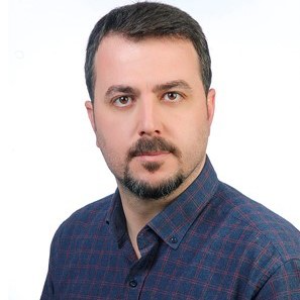Title : A new separable green-carbon material design with potential application in herbicide adsorption
Abstract:
The 2,4-dichlorophenoxyacetic acid (2,4-D) is one of the herbicides used on a large scale in agriculture worldwide due to its low cost, selectivity, and efficacy. Therefore, elimination of 2,4-D from the ecosystem is a very important issue to be solved. Many techniques have been applied to eliminate 2,4-D from aquatic environment such as advance oxidation, photodegradation, chemical oxidation with ozone, coagulation and adsorption. Of these techniques, adsorption is the most preferred and applied because of its ease of application, low-cost and environmentally friendly features. This study is focused on the synthesis and application of lentil waste-based carbon composite material (LCC) as adsorbent for the removal of the herbicide compound 2,4-dichlorphenoxyacetic acid from aqueous solution. The composite was prepared from activated carbon precursor, which was produced and optimized by the microwave-assisted K2CO3 chemical activation method using lentil processing residues. The physical and chemical structure of LCC were investigated through a series of characterization methods including BET, FTIR, XRD, XPS, FE-SEM, EDX mapping, Raman, and VSM. The effects of pH and temperature on the adsorption performances and adsorption mechanism are investigated in detail, for which the significance of structure of LCC composite is elucidated. The effect of pH shows that the adsorbent has excellent adsorption performance for 2,4-D at pH=2. The equilibrium data were better fitted to the Langmuir model. The maximum adsorption capacity of the LCC towards 2,4-dichlorophenoxyacetic acid was 400 mg/g at 45 ◦C. Thermodynamic studies showed the favorability and spontaneity of the adsorption process. Therefore, it can be concluded that magnetic carbon composite developed from lentil processing residues is a promising alternative as an adsorbent for the treatment of actual effluents containing 2,4-D herbicide.
Audience take away:
- Lentil waste-based carbon composite material (LCC) is a new green biomaterial for environmental protection. Its application potential was studied in this work and will be presented in the conference.
- Synthesis and characterization are critical for application of magnetic carbon composite in adsorption of 2,4-D herbicide.
- Lentil waste activated carbon and copper ferrite react when mechanically mixed in a mortar.
- Synergy between activated carbon and CuFe2O4 on magnetic adsorbent contributes to herbicide removal.
- Lentil waste-based carbon composite (LCC) could be considered as a promising adsorbent to remove herbicides from the wastewater.



